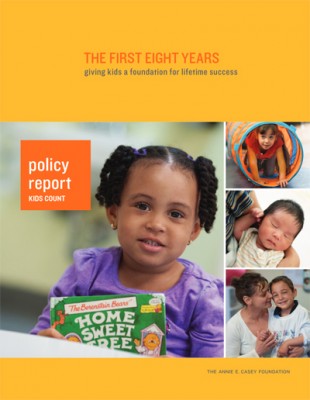Report: Most third-graders behind in cognitive development
Nearly 65 percent of third-graders lack the cognitive skills and knowledge necessary to succeed academically, according to the results of “The First Eight Years,” a report released Monday.
The Annie E. Casey foundation, a non-profit child advocacy organization, analyzed data from the Early Childhood Longitudinal study, which began to track 13,000 kindergarten students during the 1998-99 school year. The data show that by third grade, only 36 percent of students scored at or above the national average on math, reading, and science exams, with even more discouraging results for black, Hispanic, and low-income students. Only 14 percent of black students, and less than 20 percent of low-income and Hispanic students scored at or above the national average.
 Research has found that children who are behind in third grade often struggle to catch up. A third-grader who reads below grade level is four times less likely to graduate high school on time. The odds are worse for low-income students, who are 13 times less likely to graduate by age 19 if they are behind by third grade.
Research has found that children who are behind in third grade often struggle to catch up. A third-grader who reads below grade level is four times less likely to graduate high school on time. The odds are worse for low-income students, who are 13 times less likely to graduate by age 19 if they are behind by third grade.In 2011, Donald Hernandez, a professor of sociology at CUNY-Hunter College, published astudy on how third-grade reading skills and poverty influence graduation. “Children whose families live in poverty often lack resources for decent housing, flood, clothing, and books, and they often do not have access to high quality child care and early education,” Hernandez wrote. “Many arrive at kindergarten without the language or social skills they need for learning.”
By third grade, which Hernandez calls an “important pivot point in a child’s education,” this gap has often widened. Instead of learning to read, students are now expected to read to learn.
This has prompted many states to pass controversial “third grade gate” laws, which retain third-
